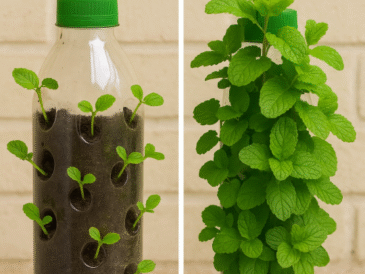In a world saturated with pharmaceuticals and synthetic supplements, the search for natural, effective remedies continues to grow exponentially. Among the pantheon of medicinal plants, sage (Salvia officinalis) stands out as a remarkably versatile herb revered for centuries. Unlike any pill, sage offers an impressive spectrum of healing properties that make it a potent ally for health and wellness. From its antiseptic and antimicrobial powers to its profound anti-inflammatory effects, sage embodies nature’s pharmacy in a single leaf.
This comprehensive article explores the incredible benefits of sage, revealing why it is truly better than any pill for supporting immune health, combating infections, improving cognitive function, and promoting holistic well-being. We will delve into its phytochemical profile, historical applications, scientific validation, practical uses, and how to incorporate this powerhouse herb into your daily life.
1. What is Sage? An Introduction to Salvia officinalis
Sage, scientifically known as Salvia officinalis, belongs to the Lamiaceae family, the same as mint, rosemary, and thyme. Native to the Mediterranean region, sage has been cultivated for thousands of years for culinary, medicinal, and spiritual purposes.
Botanical Characteristics
- Woody-stemmed perennial shrub
- Grayish-green, slightly fuzzy leaves
- Purplish-blue flowers blooming in late spring
- A strong, aromatic fragrance due to its essential oils
Historical Significance
The name “Salvia” derives from the Latin “salvare,” meaning “to heal” or “to save.” This etymology underscores the central role sage has played in traditional medicine worldwide — from ancient Egypt and Greece to indigenous cultures across Europe and the Americas.
2. Sage’s Remarkable Phytochemical Composition
The extraordinary healing powers of sage arise from its rich composition of bioactive compounds, including:
Essential Oils
- Thujone
- Camphor
- 1,8-Cineole (Eucalyptol)
- Borneol
These volatile oils are responsible for sage’s antimicrobial, antiseptic, and anti-inflammatory effects.
Polyphenols and Flavonoids
- Rosmarinic acid
- Carnosic acid
- Carnosol
- Luteolin
- Apigenin
These antioxidants neutralize harmful free radicals, protect cells from oxidative damage, and support overall immune function.
Vitamins and Minerals
- Vitamin K, C, A, and several B vitamins
- Calcium, magnesium, potassium, and zinc
These micronutrients contribute to sage’s role in maintaining healthy bones, skin, and metabolic processes.
3. Antimicrobial and Antiseptic Powers of Sage
One of sage’s most celebrated qualities is its ability to inhibit a broad spectrum of pathogens.
Fighting Bacterial Infections
Studies have shown that sage essential oil and extracts exhibit potent antibacterial activity against pathogens such as:
- Staphylococcus aureus (including MRSA strains)
- Escherichia coli
- Salmonella enterica
- Helicobacter pylori
Sage’s antimicrobial properties make it a natural option for preventing and managing infections ranging from skin wounds to digestive tract disturbances.
Combating Fungal Growth
Sage has demonstrated strong antifungal effects particularly against Candida albicans, a common yeast responsible for oral thrush and systemic infections. Regular use of sage-based mouthwashes and topical preparations can help control fungal overgrowth safely.
Natural Antiseptic for Wound Care
The antiseptic capacity of sage encourages rapid healing and reduces the risk of secondary infections in minor cuts, abrasions, and burns. Its compounds help clean wounds and stimulate tissue repair.
4. Anti-Inflammatory and Antioxidant Effects: Healing from Within
Chronic inflammation is at the root of many diseases, including arthritis, cardiovascular disorders, and neurodegenerative conditions. Sage is a powerful anti-inflammatory agent, offering relief through several mechanisms:
Inhibition of Pro-Inflammatory Enzymes
Active constituents like rosmarinic acid and carnosol inhibit enzymes such as COX-2 and lipoxygenase that drive inflammation.
Protection Against Oxidative Stress
By scavenging free radicals, sage protects cellular components including DNA, proteins, and lipids from oxidative damage. This antioxidant activity reduces the risk of chronic illnesses linked to oxidative stress.
Support for Joint and Muscle Health
Click page 2 for more



